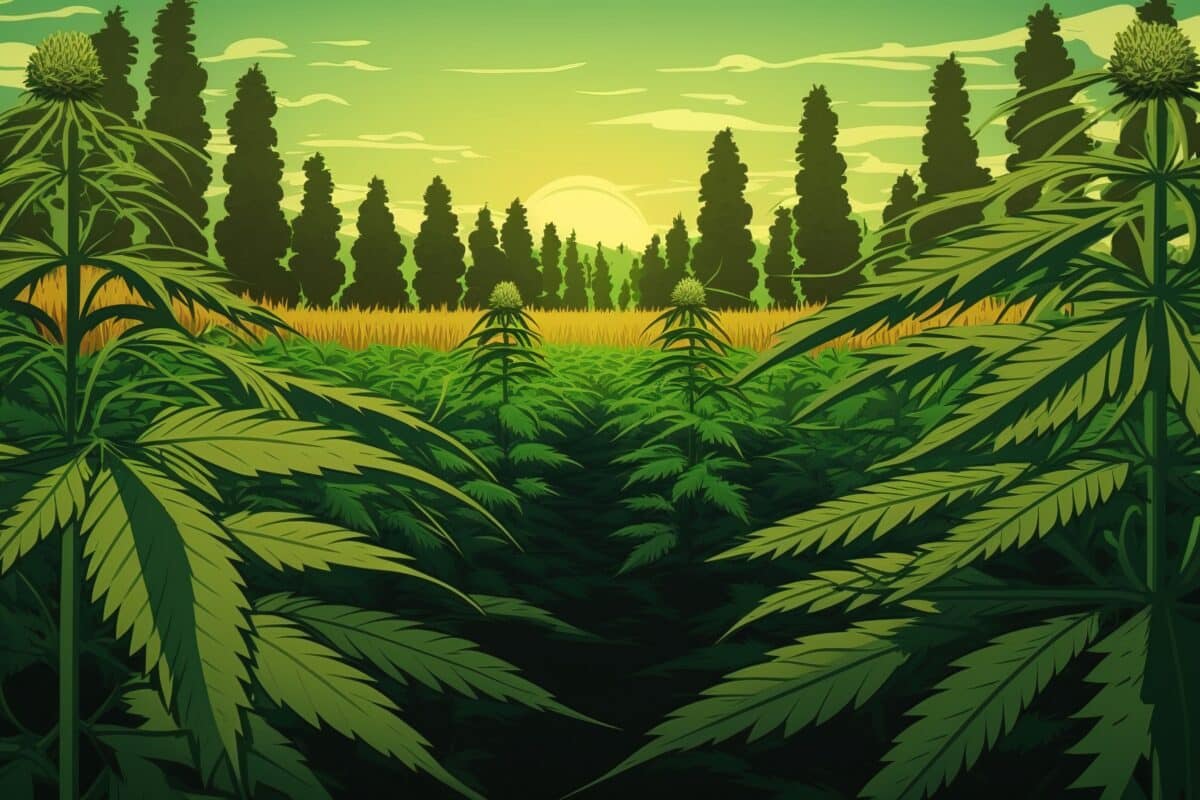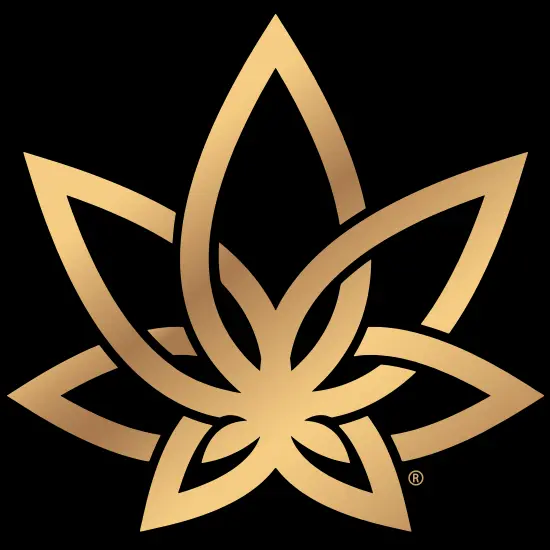Delta 8 THC
Legal Landscape of Delta 8 in the United States
As the world of cannabis continues to evolve and expand, one compound has captured significant attention – Delta 8 THC. Derived from the Cannabis sativa plant, Delta 8 is quickly becoming a popular choice for many looking to experience the benefits of cannabis. But a couple questions always linger: how is Delta 8 federally legal? Is it legal in every state?
In this comprehensive guide, we’ll delve into what Delta 8 is, how it’s produced, its current legality status in the United States, and the possible therapeutic benefits and potential risks associated with its use.
This article aims to provide an accessible and comprehensive overview of Delta 8 in the U.S. market, whether you are a seasoned cannabis enthusiast or new to the scene.

What is Delta 8?
Delta 8 THC, also known as Delta-8-tetrahydrocannabinol, is a cannabinoid extracted from the cannabis plant. It is similar to the more well-known Delta 9 THC, which is the primary psychoactive compound in cannabis responsible for the “high” sensation associated with marijuana use.
A seemingly small distinction in chemical structure between Delta 8 and Delta 9 leads to noticeable differences in how each compound affects the body (more on that later).
Delta 8 THC is often described as having a milder psychoactive impact compared to Delta 9 THC. It produces a less intense intoxicating effect, and users report experiencing a more clear-headed and focused high with fewer adverse effects like anxiety or paranoia.
Both Delta 8 and Delta 9 THC interact with the body’s endocannabinoid system, which plays a role in regulating various physiological processes such as mood, memory, pain sensation, and appetite.
Both compounds can provide benefits such as pain relief, reduced inflammation, and increased appetite. However, further research is necessary to fully understand the specific therapeutic advantages and potential risks associated with each compound.
It is important to note that the psychoactive nature of Delta 8 and Delta 9 THC means they should be used responsibly. If you are considering incorporating these compounds into your routine, it is recommended to consult with a medical professional to ensure a safe and informed approach.

What is CBD?
CBD, or cannabidiol, is one of the most prevalent naturally occurring chemical compounds, or cannabinoids, found in the Cannabis Sativa plant. Unlike its fellow cannabinoid Delta 9 THC, CBD is non-psychoactive, meaning it doesn’t produce the “high” often associated with cannabis use.
CBD also interacts with the body’s endocannabinoid system. While the exact way CBD interacts with the endocannabinoid system is not entirely understood, it’s believed to prevent endocannabinoids from being broken down, allowing them to have a greater effect on the body.
Though still ongoing, research has suggested that CBD may offer several health benefits. It’s used in a variety of health and wellness products to potentially alleviate conditions like anxiety, chronic pain, epilepsy, and insomnia.
Notably, the FDA has approved a CBD-based drug named Epidiolex for treating certain types of epilepsy, marking a significant milestone in the recognition of cannabis and its compounds as potential therapeutic agents.
However, like any substance, the use of CBD can come with side effects, such as dry mouth, reduced appetite, drowsiness, or fatigue. It’s always recommended to consult a medical professional before using CBD.
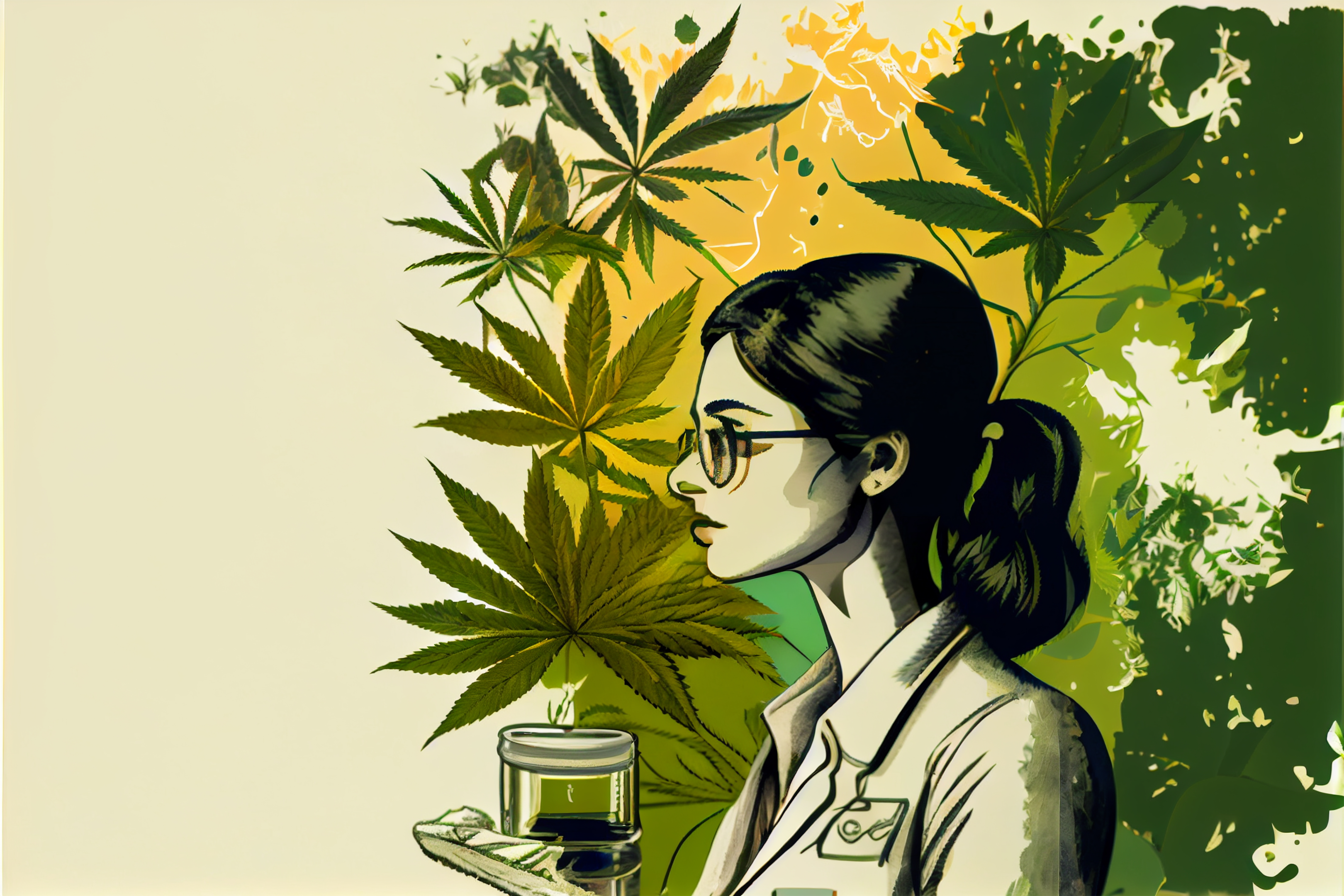
How Is Delta 8 Produced?
Like CBD, Delta 8 THC is a naturally occurring cannabinoid. Delta 8 is found in both hemp and marijuana plants.
One big difference is that unlike CBD, which is found in high concentrations, Delta 8 is found in very low concentrations in the cannabis plant.
The structural similarities among the chemical components of cannabis plants offer the possibility of transforming cannabinoids from one form to another relatively easily.
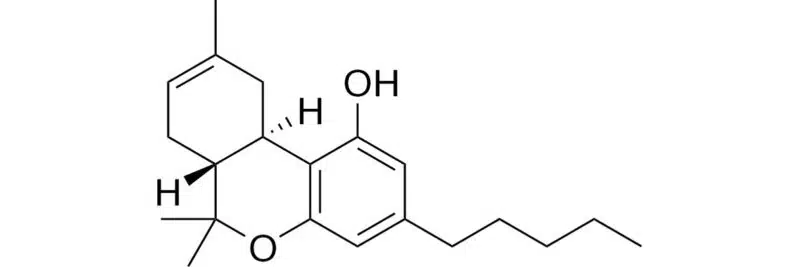
Chemical Structure of Delta 8 THC
Both Delta 8 and Delta 9 THC share a similar chemical structure, but a slight difference lies in the placement of a critical chemical bond.
In Delta 9 THC, this bond is located on the ninth carbon chain, while in Delta 8 THC, it’s on the eighth carbon chain. This seemingly minor distinction results in notable differences in the effects each compound has on the human body.
It is important to note that these transformations, often referred to as “conversions” or “derivatives,” should not be mistaken for synthetic compounds.
These conversions occur naturally within cannabis plants, and many cannabinoids naturally transition into one another over time through the influence of heat, light, and the passage of time.
In fact, it is believed that all cannabinoids begin as CBGA and naturally synthesize into various other cannabinoids during the cannabis plant’s maturation.
For instance, the conversion of THCA to Delta 9 THC through the application of heat is a common conversion process experienced by individuals who smoke marijuana.

Conversions in the Cannabis Plant
Conversions play a natural and significant role in the cannabis industry.
These reactions also contribute to the production of other rare cannabinoids, such as cannabichromene (CBC), cannabinol (CBN), and Delta 8 THC.
Moreover, conversions can be employed to create abundant cannabinoids like Delta 9 THC more affordably than through straightforward extraction methods.
However, given that companies produce Delta 8 THC in laboratories, it is crucial to consider the safety of the resulting distillate. Specifically, there should be concerns regarding the proper removal of solvents, reagents, acids, or bases from the final product to ensure its safe production.
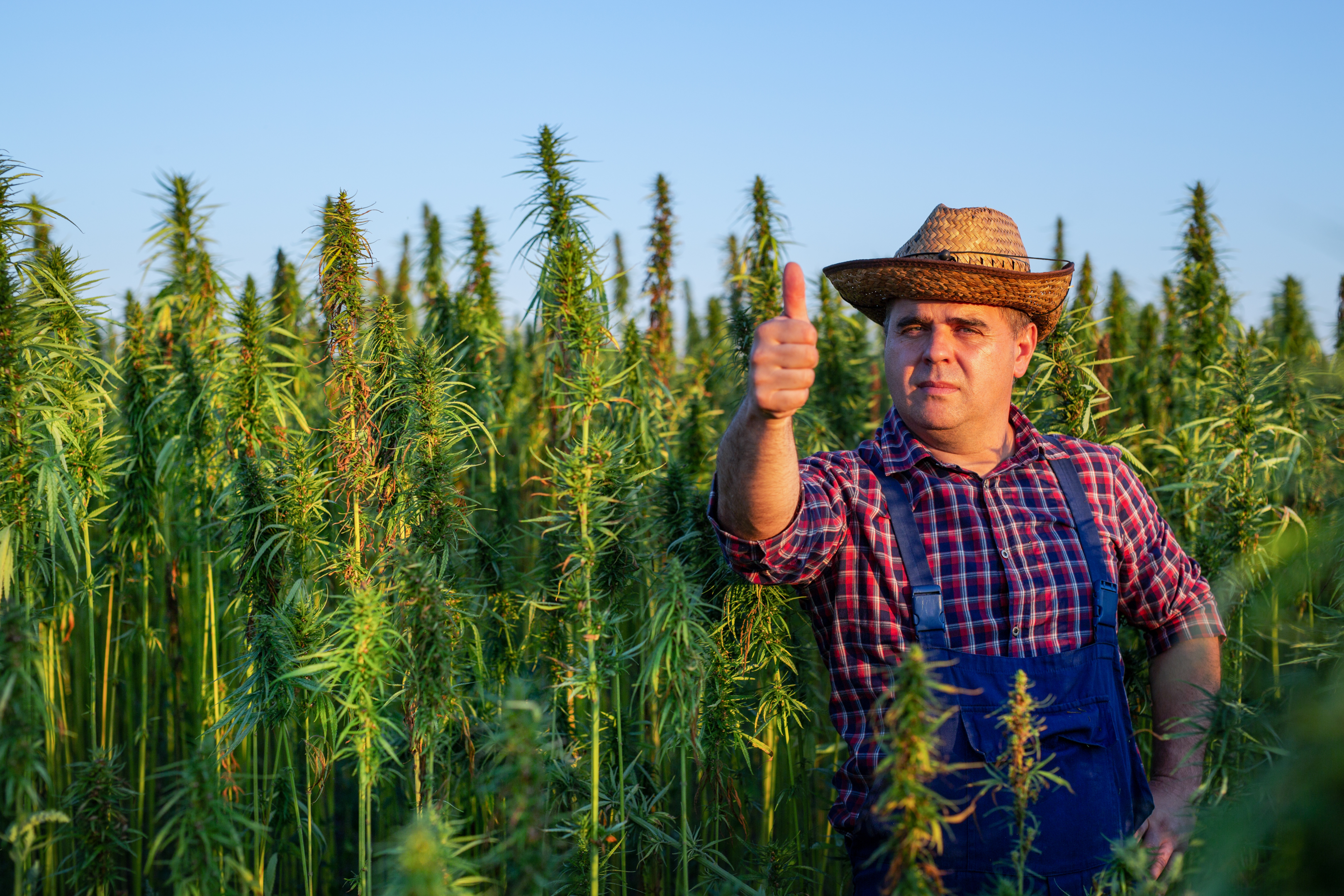
The 2014 Farm Bill
The Agricultural Act of 2014, commonly known as the 2014 Farm Bill, is a significant piece of legislation that governs various aspects of agricultural and food policy in the United States. It was signed into law on February 7, 2014, and covers a wide range of programs, including crop insurance, nutrition assistance, conservation, rural development, research, and trade. The 2014 Farm Bill replaced the previous farm bill, which had expired in 2008, and was designed to guide agricultural policies and programs through 2018.
Key Provision of the 2014 Farm Bill Regarding Hemp Production
The 2014 Farm Bill includes a provision that allows for the cultivation of industrial hemp for research purposes. It authorized universities and state agriculture departments to grow hemp under specific conditions, paving the way for the resurgence of hemp as an agricultural commodity.
Impact and Legacy
The 2014 Farm Bill had a significant impact on agricultural policy, rural communities, and food assistance programs in the United States. It provided stability and support to farmers while promoting conservation and sustainable practices. The expansion of crop insurance and the modernization of nutrition assistance programs were notable achievements of the bill. Furthermore, the inclusion of hemp provisions set the stage for subsequent legislation that legalized hemp cultivation and production on a broader scale.
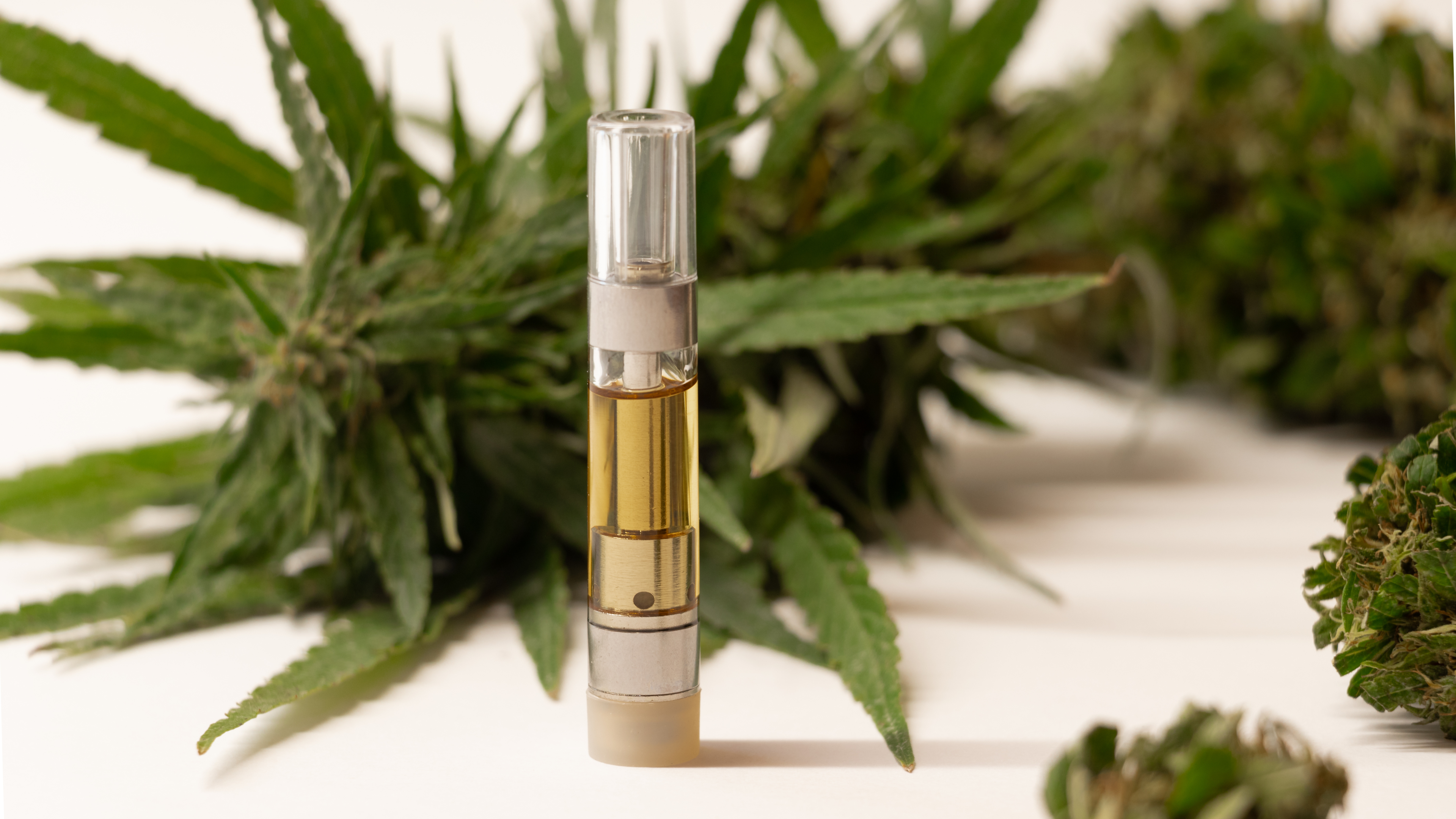
The 2018 Farm Bill
The Agricultural Improvement Act of 2018, commonly known as the 2018 Farm Bill, is a significant piece of legislation that shapes agricultural and food policy in the United States. Signed into law on December 20, 2018, the 2018 Farm Bill builds upon previous farm bills and provides a framework for agricultural programs and policies through 2023. It covers a broad range of topics, including commodity programs, crop insurance, conservation, nutrition assistance, rural development, research, and hemp legalization.
Key Provision of the 2018 Farm Bill Regarding Hemp Production
One of the significant provisions of the 2018 Farm Bill is the legalization of hemp as an agricultural commodity. It removes hemp, defined as cannabis plants containing less than 0.3% THC, from the list of controlled substances. This change opens doors for the cultivation, processing, and commercialization of hemp-derived products, such as CBD, under federal regulation.
Impact and Legacy
The legalization of hemp has sparked a burgeoning hemp industry. Farmers, entrepreneurs, and consumers are benefiting from new economic opportunities and the availability of hemp-derived products. The Farm Bill’s focus on rural development promotes economic growth, infrastructure improvements, and access to essential services in rural areas.
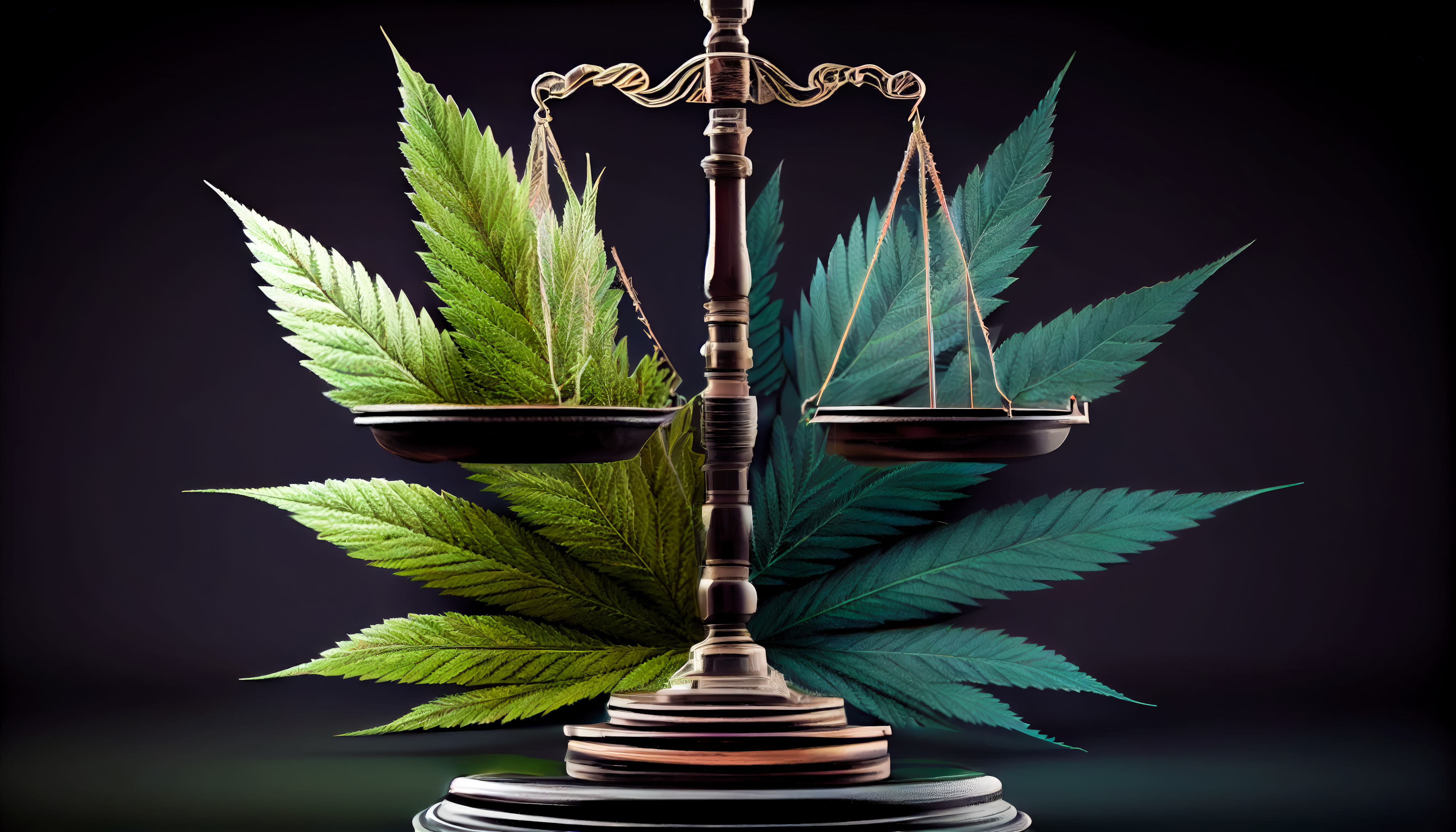
The Legal Status of Delta 8 in the United States
On a federal level, the compound is technically legal under certain conditions. It must be hemp-derived and contain no more than 0.3% Delta 9 THC, following the guidelines set by the 2018 Farm Bill. However, the legality of Delta 8 products can vary greatly at the state level, with laws changing frequently.
We recommend that you always do your own research as laws may have changed since the time of publication of this article.
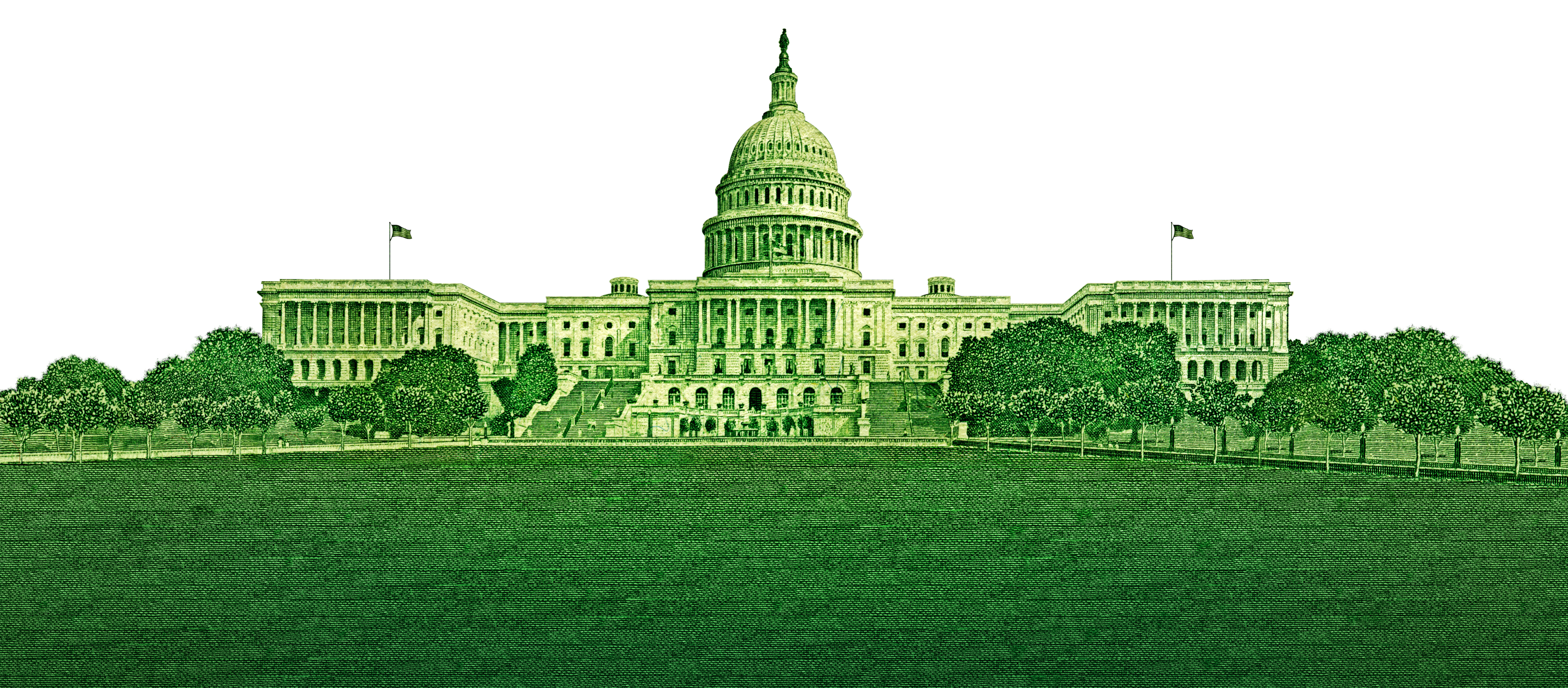
Federal Level Regulations
The federal government’s perspective on Delta 8 is tied to its stance on the cannabis plant, particularly the hemp plant. After the 2018 Farm Bill removed hemp from the Controlled Substances Act, hemp and hemp products, including those with Delta 8, became federally legal.
However, the FDA is actively working to regulate the market, issuing warning letters to companies that market Delta 8 products with unsupported health claims. This emphasizes the importance of staying updated with the most current information regarding the legal status of Delta 8.
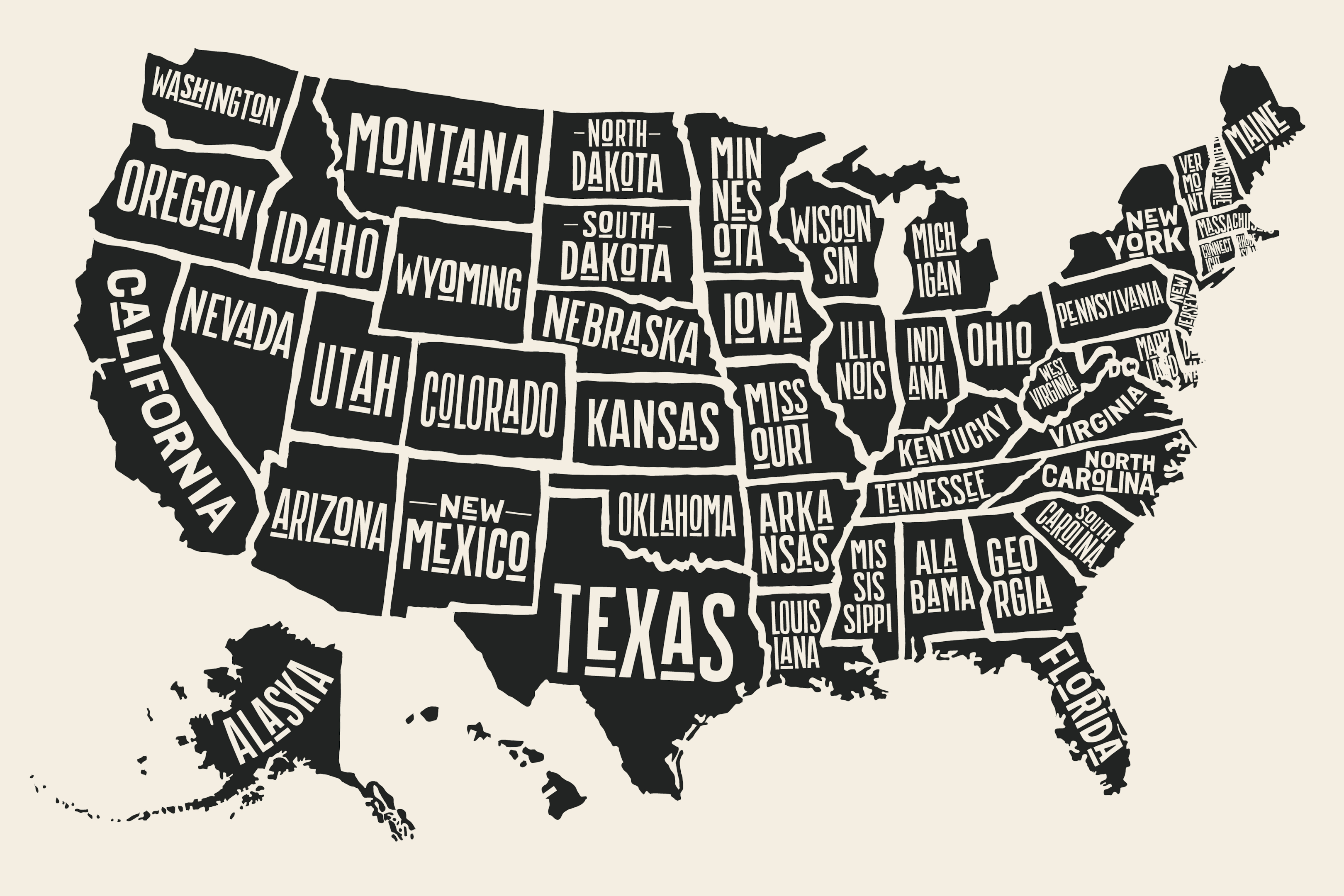
State Level Regulations
While Delta 8 may be federally legal, the situation is more complex at the state level. State legislatures have the power to regulate substances derived from the hemp plant within their boundaries, leading to a patchwork of laws across the country. In most states, Delta 8 is legal, but there are exceptions.
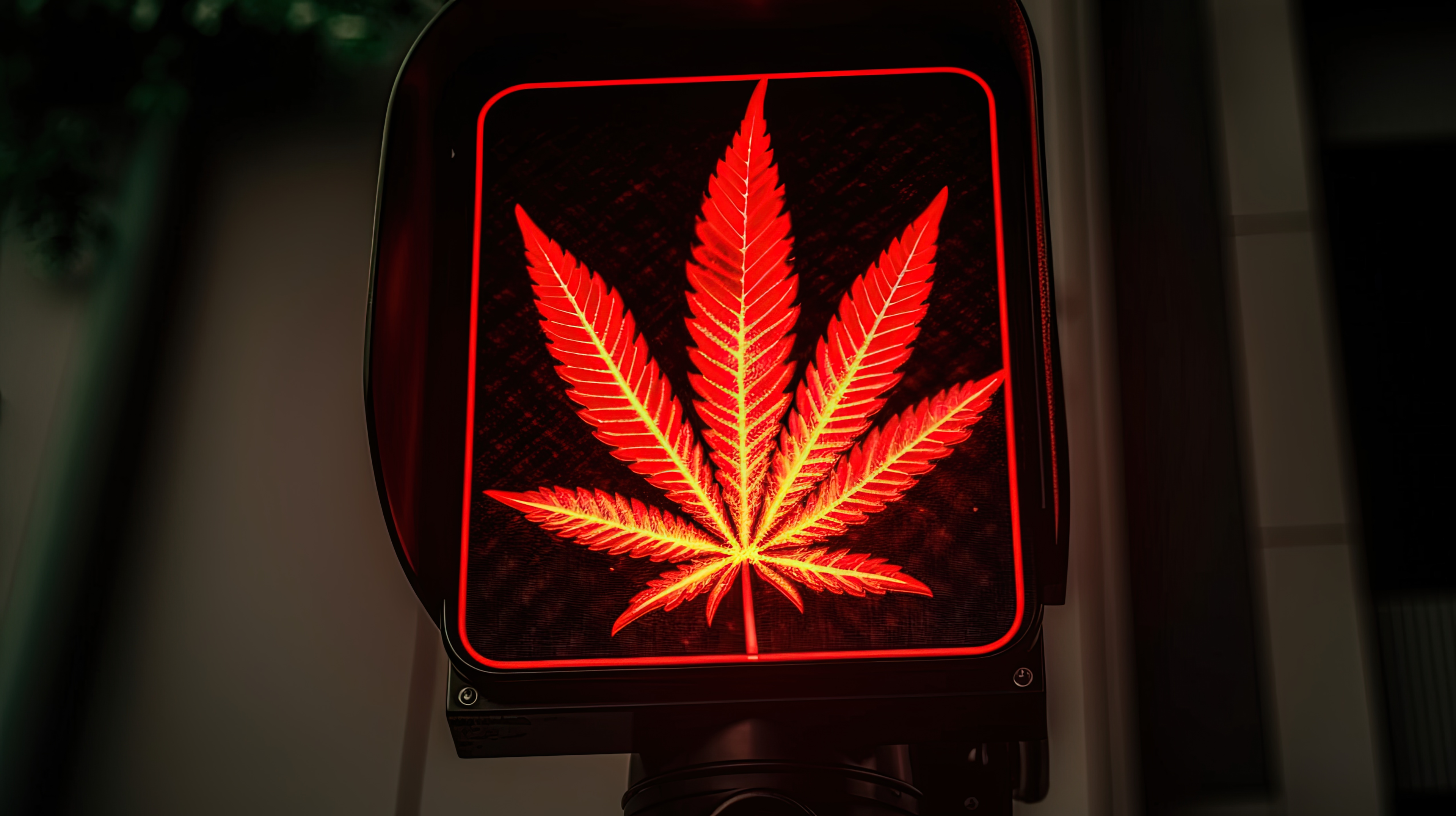
States that have Banned Delta 8 THC:
ALASKA
House CS for CS for Senate Bill No. 6. & Article 1. Offenses Relating to Controlled Substances. Chapter 71. Controlled Substances
Recreational and medical marijuana use is legal.
ARIZONA
Titles 3 Agriculture. CH. 2, ART. 4.1 Industrial Hemp & Title 36 Public Health and Safety
Recreational and medical marijuana use is legal.
CALIFORNIA
California Industrial Hemp Law Division 24, Title 3, Division 4, Chapter 8 & Division 10. Uniform Controlled Substances Act
Recreational and medical marijuana use is legal.
COLORADO
Senate Bill 14-184 & Title 18 Criminal Code. Article 18. Uniform Controlled Substances Act of 2013. Part 1
Recreational and medical marijuana use is legal.
DELAWARE
2019 Delaware Hemp Research Pilot Program & Title 16. Chapter 47. Uniform Controlled Substances Act
Recreational and medical marijuana use is legal.
HAWAII
Banned by an Administrative Rule. House Bill 2689.
Medical marijuana use is legal.
IDAHO
House Bill 122
IOWA
Iowa State Code 124 – Controlled Substances
Medical marijuana use is legal.
MISSISSIPPI
Senate Bill 2725
Medical marijuana use is legal.
MONTANA
Montana Code Annotated 2019 – Effective from 8/24/2019
Recreational and medical marijuana use is legal.
NEVADA
Senate Bill 49, Chapter 557 – Hemp, & Chapter 453 – Controlled Substances
Recreational and medical marijuana use is legal.
NEW YORK
The Cannabinoid Hemp Regulations (Section 114.8 (a)(11), page 24)
Recreational and medical marijuana use is legal.
NORTH DAKOTA
House Bill 1045
Medical marijuana use is legal.
RHODE ISLAND
Chapter 2-26 – Hemp Growth Act & Section 3. Section 21-28-1.02 of Chapter 21-28 of the General Laws entitled “Uniform Controlled Substances Act” Amended January 1, 2023
Recreational and medical marijuana use is legal.
VERMONT
The Vermont Hemp Rules – § 6.3.
Recreational and medical marijuana use is legal.
WASHINGTON
SB 5276
Recreational and medical marijuana use is legal.
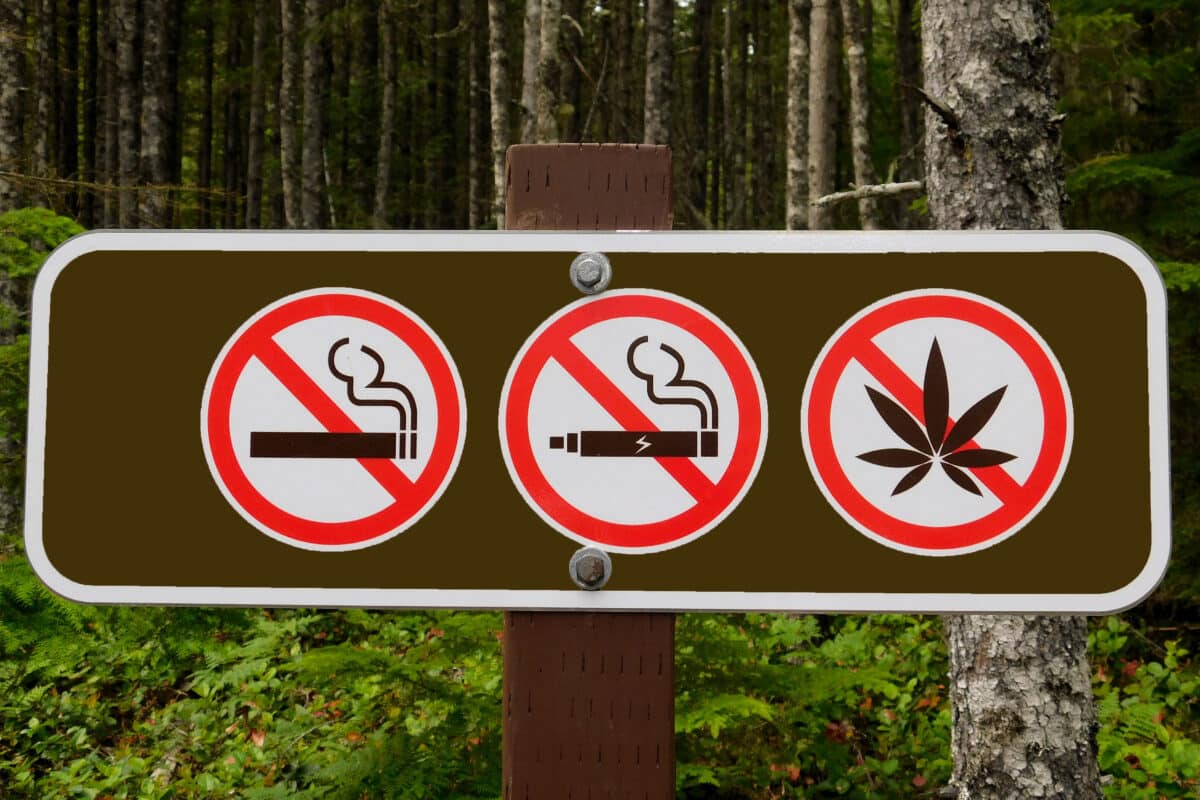
States with Delta 8 Regulations:
CONNECTICUT
Senate Bill 1201 – Delta 8 can only be purchased from a licensed cannabis retailer in the State; faces the same regulations as Delta 9 THC and cannot be purchased from online retailers.
Recreational and medical marijuana use is legal.
KENTUCKY
House Bill 544 – Product Testing and Labeling Requirements
Medical marijuana use is legal.
LOUISIANA
House Bill 640 – Inhalable Products are Banned; House Bill 758 – products can only contain up to 8mg of THC per serving.
Medical marijuana use is legal.
MICHIGAN
House Bill 4517 – Can only be purchased from a licensed cannabis retailer in the State.
Recreational and medical marijuana use is legal.
MINNESOTA
HF 3595 – Hemp Edibles can contain no more than 5mg of THC per serving.
Recreational and medical marijuana use is legal.
OREGON
HB 2261 – Inhalable products are banned for direct-to-consumer sales meaning that the legislation prohibits the online sale of the vast majority of D8 vape products.
Recreational and medical marijuana use is legal.
SOUTH DAKOTA
HB 1191 – You may only purchase products containing more than 0.3% D9 THC if you are registered with the medical marijuana program in the state.
Medical marijuana use is legal.
UTAH
Rule R68-22-2 & Chapter 37 Utah Controlled Substances Act – Delta 8 is regulated through the medical marijuana program in the state but is illegal to those without a medical card.
Medical marijuana use is legal.
VIRGINIA
HB 2294 – Retailers must obtain a license from the Virginia Dept. of Agriculture and Consumer Services and products cannot contain more than 2mg of THC per package.
Recreational and medical marijuana use is legal.
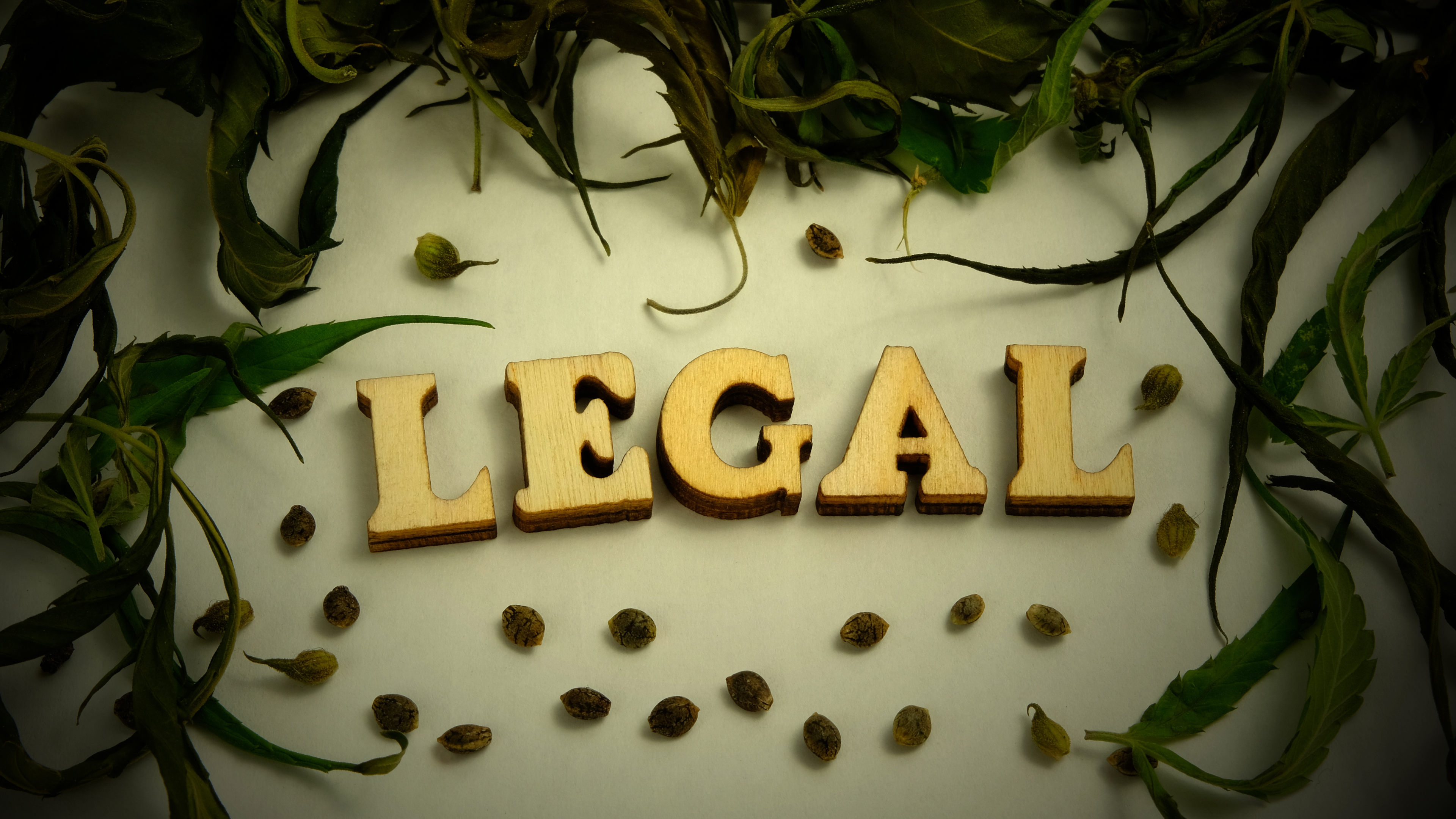
States where Delta 8 is Unregulated (aka Legal):
ALABAMA
Alabama Code 2-8-381
Medical marijuana use is legal.
ARKANSAS
Arkansas Industrial Hemp Act 2-15-401 & House Bill 1415. Act 329.
Medical marijuana use is legal.
FLORIDA
Senate Bill 1020
Medical marijuana use is legal.
GEORGIA
House Bill 213
Medical marijuana use is legal.
ILLINOIS
Senate Bill 2298 – The Industrial Hemp Act
Recreational and medical marijuana use is legal.
INDIANA
Senate Enrolled Act No. 516 & Article 48. Controlled Substances
KANSAS
Senate Bill 263
MAINE
Title 7 – Agriculture and Animals. Part 5: Plant Industry. Chapter 406-A: Hemp
Recreational and medical marijuana use is legal.
MARYLAND
House Bill 1123
Recreational and medical marijuana use is legal.
MASSACHUSETTS
Bill H.4001
Recreational and medical marijuana use is legal.
MISSOURI
Title 2 Dept. of Agriculture. Division 70 – Plant Industries Chapter. 17 – Industrial Hemp & Title XII Public Health and Welfare. Chapter 195
Recreational and medical marijuana use is legal.
NEBRASKA
Legislative Bill 657 – Nebraska Hemp Farming Act
NEW HAMPSHIRE
House Bill 459-FN – Final Version & Controlled Drug Act
Medical marijuana use is legal.
NEW JERSEY
New Jersey Hemp Program
Recreational and medical marijuana use is legal.
NEW MEXICO
Hemp Final Rule – 20.10.2 NMAC Hemp Extraction, Production, Transportation, Warehousing, and Testing
Recreational and medical marijuana use is legal.
NORTH CAROLINA
Senate Bill 352 – Second Edition
OHIO
Amended Substitute Senate Bill Number 57
Medical marijuana use is legal.
OKLAHOMA
State Bill 238. Section 1. C.
Medical marijuana use is legal.
PENNSYLVANIA
House Bill 1899 and SB 936
Medical marijuana use is legal.
SOUTH CAROLINA
House Bill 3449, Section 46-55-10
TENNESSEE
Senate Bill 357, Section 43-27-101
TEXAS
Title 5. Subtitle F. – Hemp & Title 6. Subtitle C. – Substance Abuse Regulation and Crimes
WEST VIRGINIA
Houe Bill 2694
Medical marijuana is legal.
WISCONSIN
Chapter 94 – Plant Industry & Chapter 961 Uniform Controlled Substances Act
WYOMING
House Bill 0171. Chapter 51 – Hemp Production
Potential Therapeutic Benefits and Risks of Delta 8
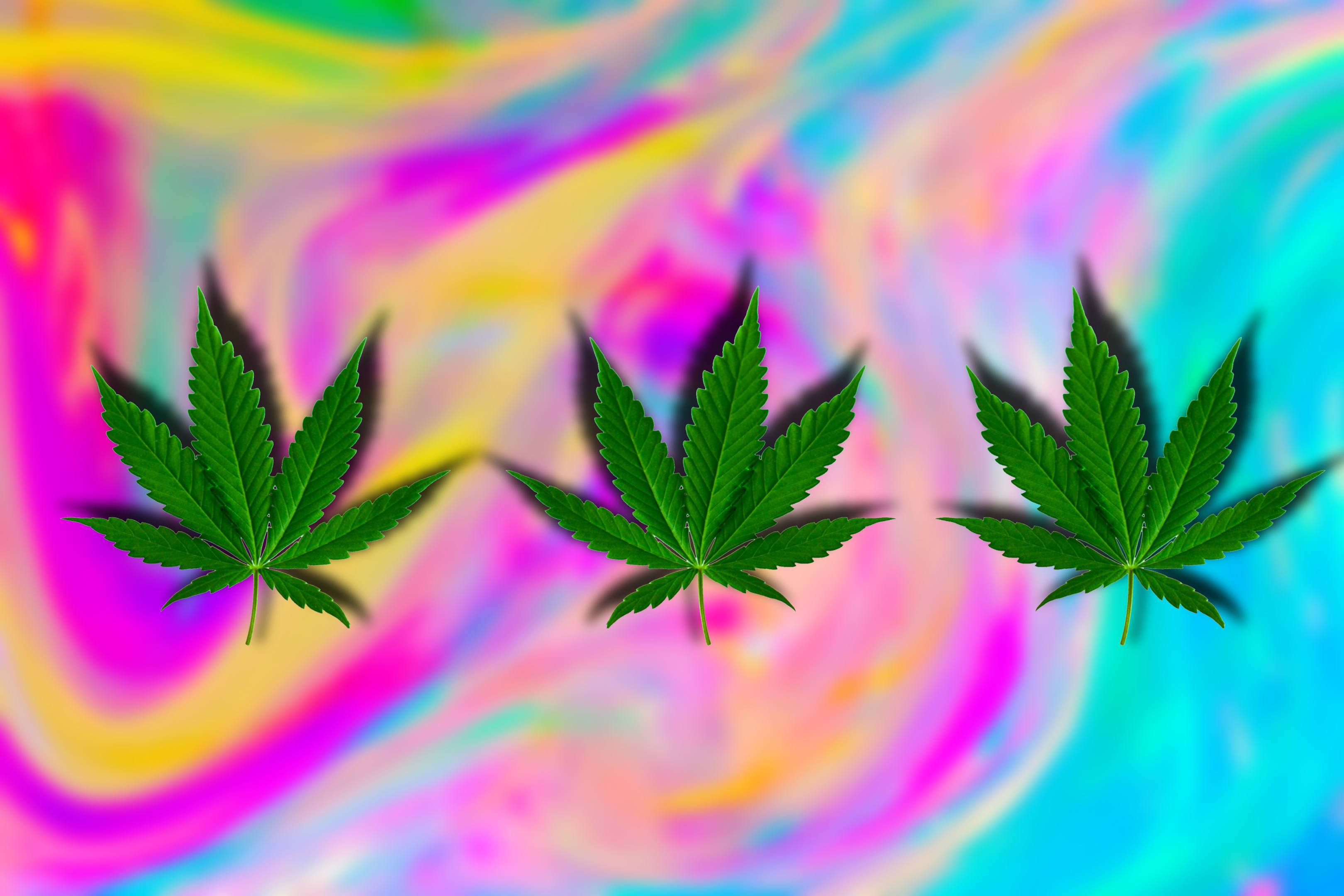
Therapeutic Benefits
Several therapeutic benefits are associated with the use of Delta 8 THC. Many users report improved sleep quality, overall feelings of euphoria and relaxation. Medical professionals also highlight its potential benefits for various medical conditions.

Potential Risks and Side Effects
Like other cannabinoids, Delta 8 has potential risks and negative side effects. Users may experience dry mouth, changes in appetite, and intoxicating effects, similar to those associated with marijuana use and Delta 9 THC products. It’s essential to consult with medical professionals before starting any new regimen involving Delta 8 or any other THC products.
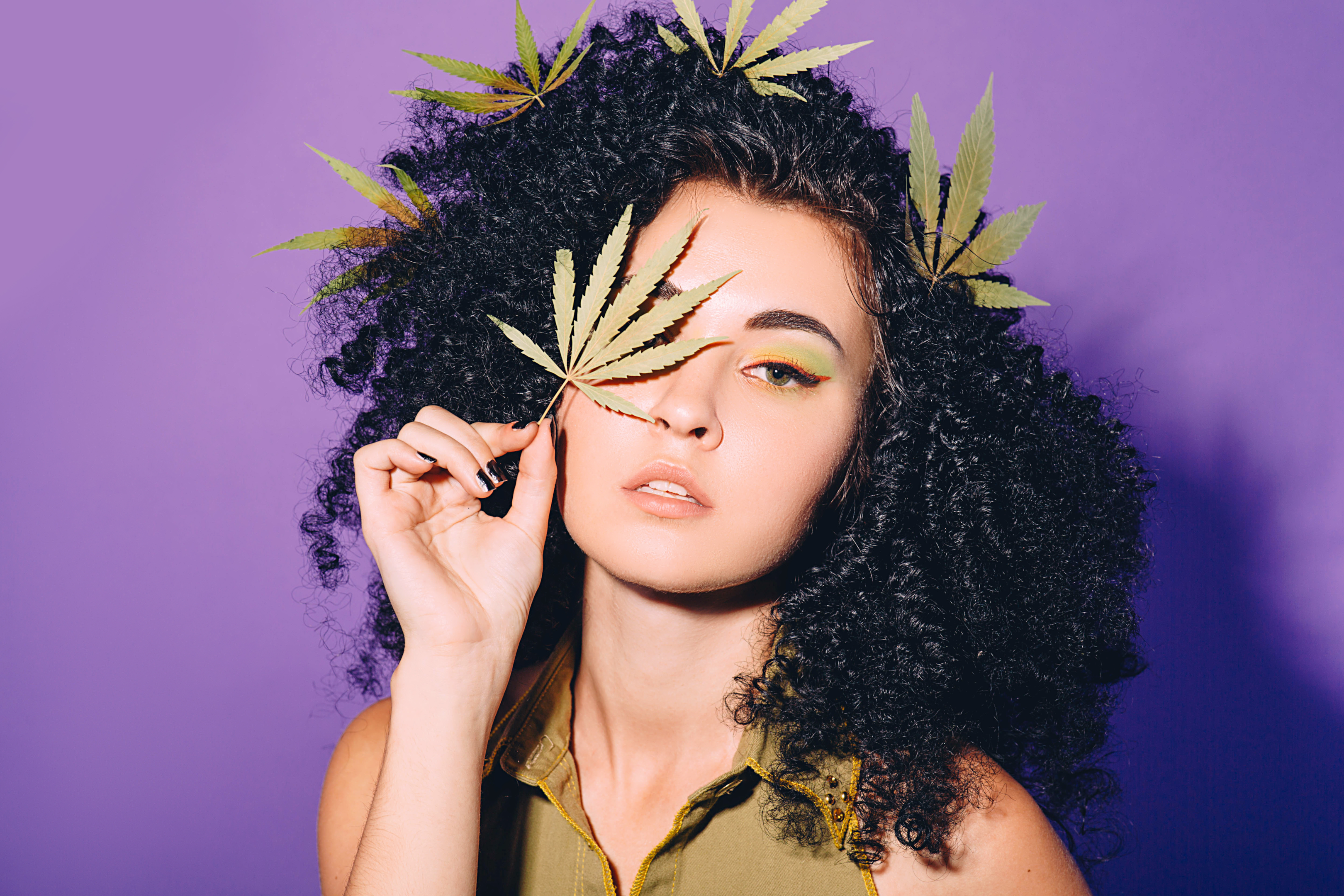
The Increasing Popularity of Delta 8
With the increasing popularity of Delta 8 THC, consumers can find it in convenience stores, gas stations, and online. The recreational cannabis market has been quick to adopt this compound due to its legal status in many states and its similar effects to recreational marijuana.
It is important to ensure that you are purchasing from a reputable brand that has safe manufacturing practices and provides third-party test results on their website.
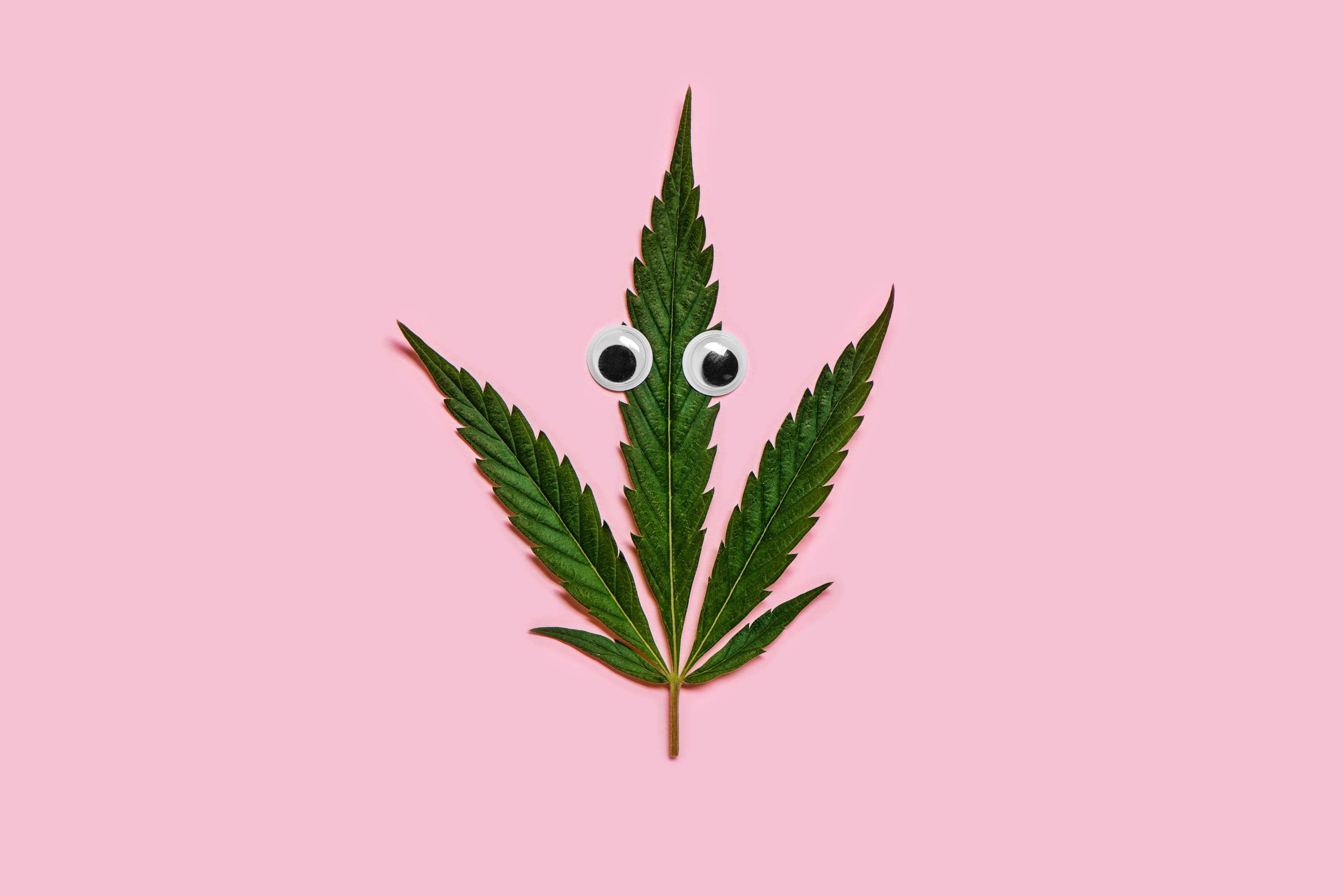
Final Thoughts
The future of Delta 8 THC remains uncertain as the federal government, state legislatures, and regulatory bodies like the FDA continue to reassess cannabis and hemp laws.
Despite this, the market for Delta 8 THC products continues to grow due to their potential therapeutic benefits and legal status in many states. Though many states that have previously legalized marijuana have stricter restrictions on Delta 8 products, the laws are ever-changing.
Remember, it’s crucial to stay updated with the most current information regarding the legal status of Delta 8 and to consult with medical professionals regarding its use.
